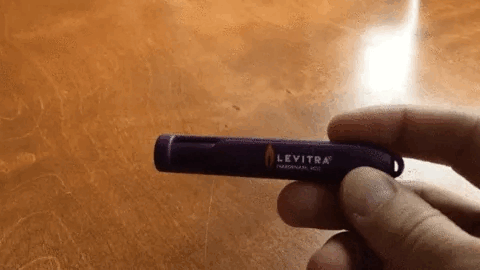
Athletes use it for energy – does it boost mood too?
Unsubscribe | Report as spam | Change email preferences
Story-At-a-Glance
Hey, Matt Cook here, and there are a handful of amazing supplements that seem to be one-stop-shops for men’s health…
Today’s supplement is one of those – it boosts energy, improves workouts, supports testosterone, and can even fight inflammation…
…and now researchers have discovered yet another impressive benefit…
…because this golden supplement can dramatically reduce anxiety and depression in men.
Here’s this super-supplement and how to use it to feel cool, calm, and confident…
—-Important Message—-
My new “rockiness priming” method for men who want stronger erections on demand
I’ve come up with a way to get stronger, bigger, more powerfully pumping members…
Practically on demand.
I call it my new erections priming method because it starts naturally boosting all the hormones men need to get rocky.
Hormones like testosterone, DHEA, and DHT.
So now these erections hormones are flooding your body, making erections almost automatic…
It’s like you snap your fingers and suddenly you’re sporting a rigid towel-hanger that’s delighting her.
Here’s my new erections priming method for men who want stronger, bigger erections on demand
———-
Can this supplement destroy anxiety?
Creatine is a nutrient found in meat, eggs, and fish. It’s also one of the world’s most popular sports supplements.
One of the reasons creatine supplementation is so popular is because it helps the cells to produce energy more efficiently.
This increases workout performance and helps people to reach their goals.
But it’s not just muscles that rely on energy production for well-being, and creatine has beneficial effects all throughout the body.
Depression is usually caused by some combination of low cellular energy, inflammation, and elevated stress hormones.
Creatine improves energy production and has beneficial effects on depression-related hormones like cortisol and testosterone.
It also boosts motivating substances like dopamine and DHT.
Some studies have even shown that it is an anti-inflammatory in some contexts.
So then, it should be no surprise to learn that consumption of dietary creatine is associated with a lower risk of depression.
The human research was carried out at University of Utah School of Medicine. The paper was published in Translational Psychiatry.
For some of the reasons stated above, creatine supplements are being investigated for potential beneficial roles in depression.
We already know that the supplemental form of creatine can help with general brain function.
“Creatine monohydrate is actively being researched for its antidepressant effects, yet little is known about the link between dietary creatine and depression risk.”
This work set out to see if there was any relationship between creatine from food sources and the risk of depression.
The researchers used data from a large nutrition survey carried out in the United States between 2005 and 2012 (called NHANES).
The researchers analyzed data from more than 20,000 adults.
They had dietary information on all of the participants, as well as information on whether the individuals suffered from depression.
The participants were split into 4 groups (quartiles) according to how much creatine they consumed in their diet.
“Depression prevalence was calculated within quartiles of dietary creatine intake.”
The researchers also took into account other factors which can significantly influence the risk of suffering from depression.
“Additional covariates included income to poverty ratio, race/ethnicity, gender, age, education level, body mass index, healthcare access, smoking status, physical activity, and antidepressant/anxiolytic treatment use.”
They found that 10% of people in the low-creatine group suffered from depression.
But only about 6% of people in the highest-creating group reported being depressed.
“Depression prevalence was 10% persons among NHANES participants in the lowest quartile of dietary creatine intake compared with 6% persons among participants in the highest quartile.”
Higher dietary creatine intake was associated with a ⅓ reduced risk of depression in the total study population.
“An inverse association was measured between dietary creatine and depression (adjusted odds ratio = 0.68).”
Depression was further decreased in female high-creatine consumers – with a reduction of 38%.
High-creatine consumption was associated with an almost 50% reduction in depression in people in their 20s and 30s.
People who were not taking treatments for depression or anxiety also had above average reductions in risk of depression when their creatine consumption was at the higher end.
“Dietary creatine’s negative association with depression was strongest in females (AOR = 0.6), participants aged 20-39 years (AOR = 0.5) and participants not taking antidepressant/anxiolytic treatment (AOR = 0.6).”
Supplemental creatine powder is being investigated as a potential antidepressant.
This study shows that creatine from food is associated with a much lower risk of depression.
“Study results indicate a significant negative relationship between dietary creatine and depression in a nationally representative adult cohort.”
The researchers called for further study into the topic.
“Further research is warranted to investigate the role creatine plays in depression, particularly among women and across the lifespan.”
The previously shown effects of creatine on depression related hormones, neurotransmitters, and cellular energy production…
…lead me to believe that creatine from any source is likely to lead to a decreased risk of depression.
—-Important Message—-
What is the secret of these very old people living in 3rd world countries?
I’ve been all over the world — 59 countries, 3 continents, hundreds and thousands of miles…
Outside the U.S. in these third world countries, I often see very old men acting decades younger…
But in the U.S., I see younger men talking about their diabetes to supermarket employees and riding scooters just to get around.
So what makes people in the US confined to nursing homes and wheelchairs…
…while people in other countries are active and spry, even when they are 100 years old or older?
Here’s what I found — 1 thing these men in other countries do differently to live past 100 years old
———-



